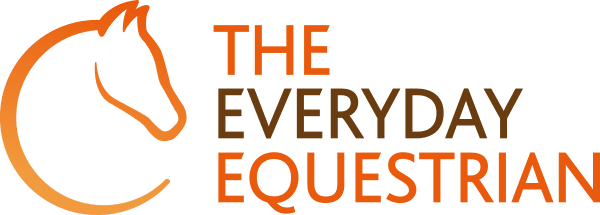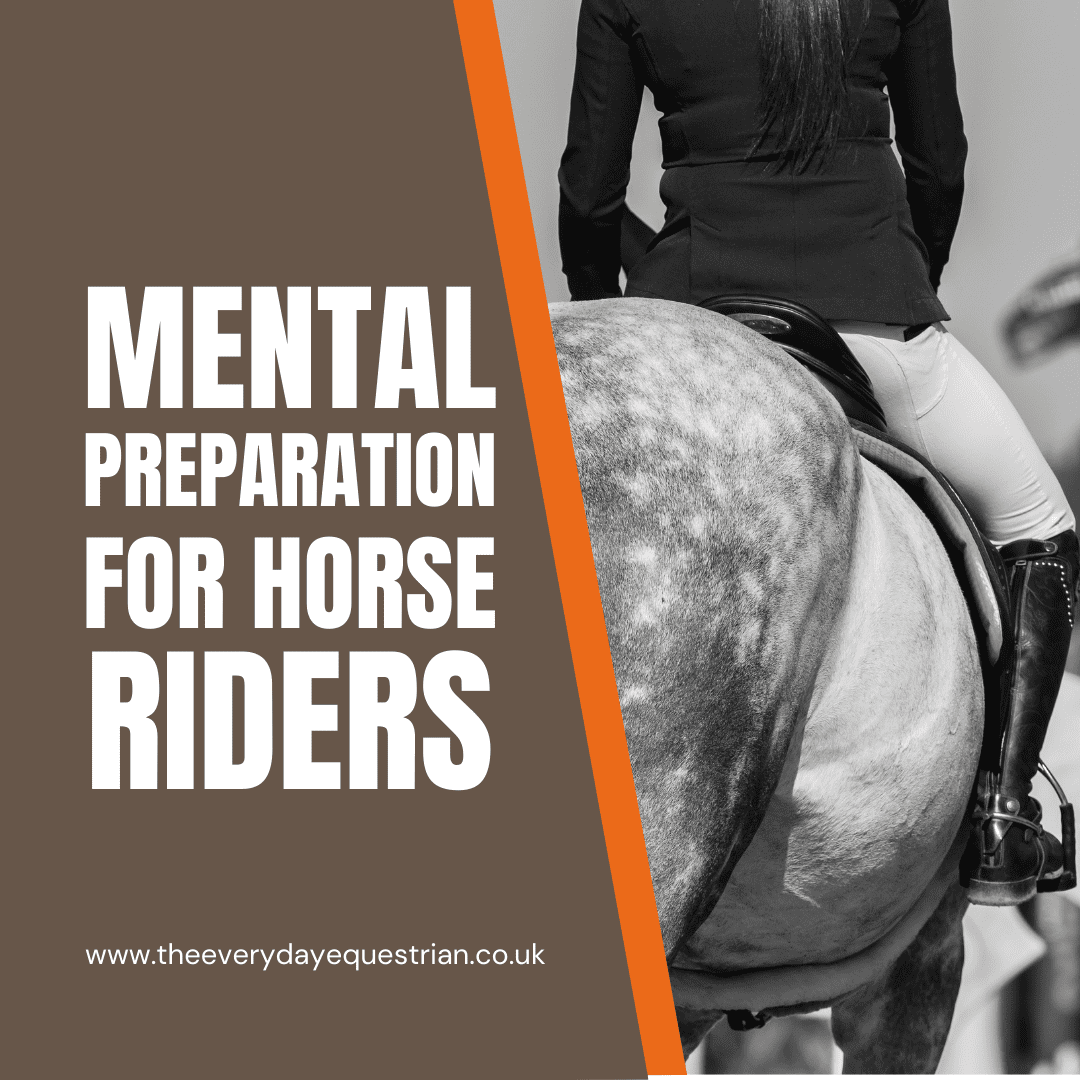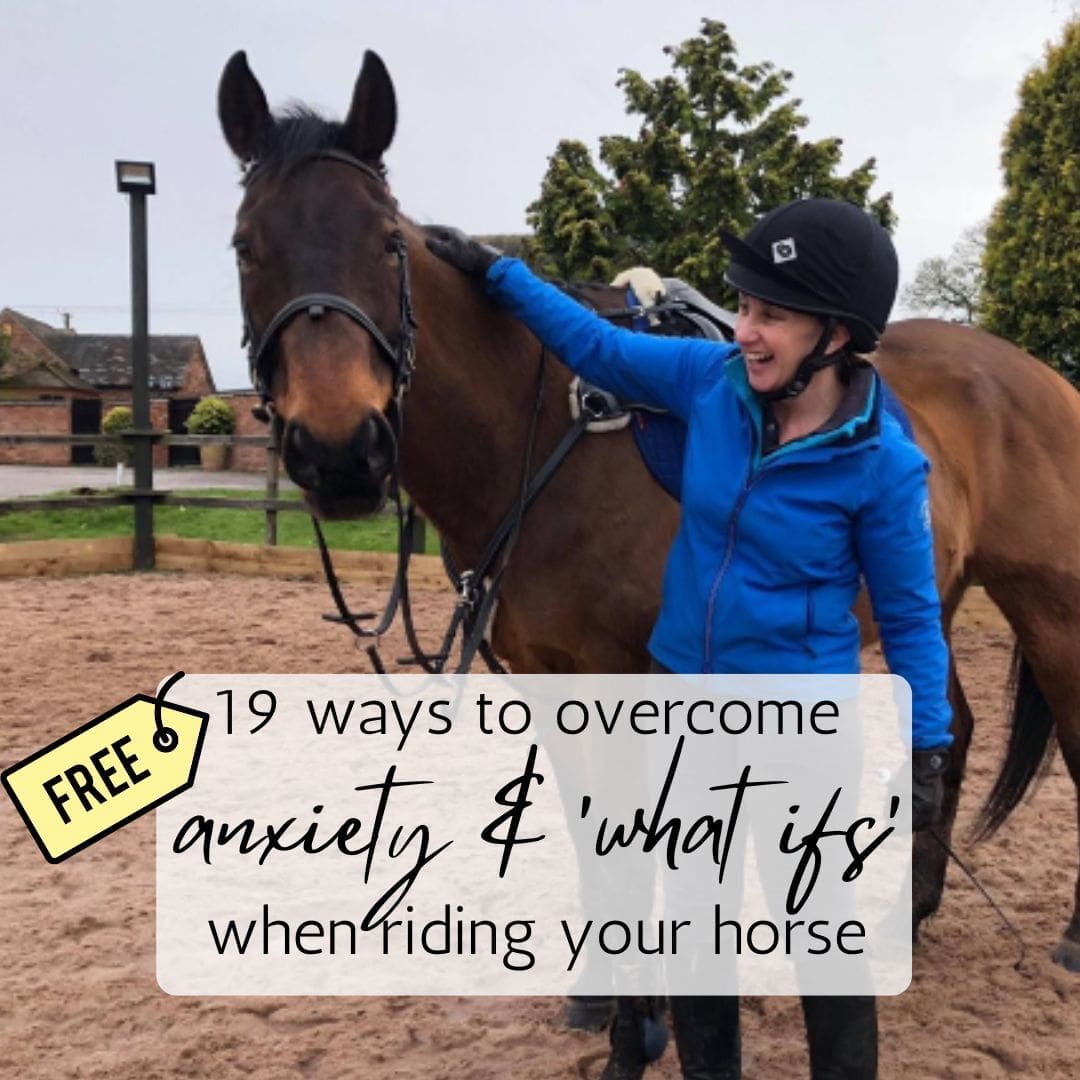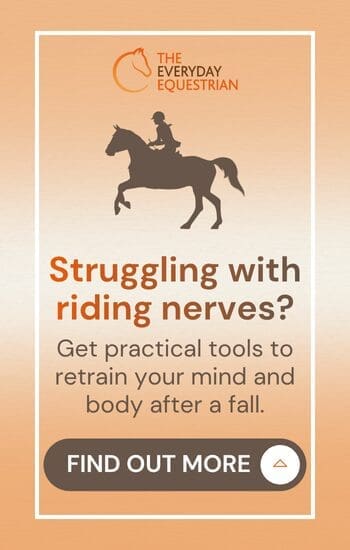What is ‘mental preparation’?
Mental preparation can help any rider, regardless of the discipline or level of experience, to reduce stress and anxiety, manage emotions and thought processes, and improve confidence when riding.
There is a range of psychological factors which influence the rider’s ‘frame of mind’ when riding; some will be helpful whilst others can have a significant impact on how the rider feels, how effective they are, and ultimately how their horse responds.
Most riders want to do their best, for themselves and their horse. No one really wants to feel anxious, nervous or even scared, right? Our inner drive to improve, to ‘perform’ at our best (and no, this doesn’t always mean in competition; we can ‘perform well’ any time we ride our horse), and our determination to keep going, are all strongly linked to our levels of motivation. The psychological term ‘arousal’ refers to the strength or intensity of our levels of motivation.
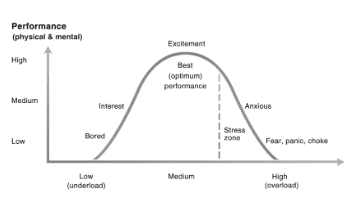
Figure 1 illustrates the link between our level of performance as a rider (however we decide to assess ‘performance’), with our levels of arousal. When we are poorly motivated, i.e. disinterested, the quality of our performance drops. Further, when we are highly stressed, anxious and nervous, our ability to ride effectively and positively is also low, and will inevitably have a negative impact on our horse. Conversely, when we manage our emotions and thought patterns effectively, we’re better able to ride to the best of our (current) ability.
How does ‘mental preparation’ help build confidence?
A recent study (McGinn et al., 2018) explored how five elite, professional event riders used psychological interventions and mental preparation techniques to manage competition anxiety and boost confidence. The researchers identified two key themes in the rider’s pre-performance preparation:
- Planning and preparation for the event, i.e. goal-setting, managing time and pre-performance routines
- Managing their levels of arousal and managing distractions, i.e. the use of psychological interventions, such as adjusting self-talk and imagery to manage arousal levels, and getting support from their teams to reduce distractions (McGinn et al., 2018).
This is good news! These same techniques and be used by any rider who simply wants to reduce anxiety or nerves around riding their horse… and why wouldn’t we?
Effective mental preparation can have a huge impact on riders:
- It helps riders to focus on seeking out feedback, rather than only finding perceived failures
- It helps riders to track and reflect on their progress towards a specific goal
- It improves focus on the process, paying attention to what riders can control, rather than being fixated on the outcome
- It allows riders to have a clear objective for each session, for themselves and/or their horse
All it takes is a little planning and a range of psychological techniques in a rider’s toolkit.
Visualisation and mental rehearsal
Our mind is incredibly powerful, although just like a young horse, needs clear directions! Visualisation refers to the use of imagery in our mind to provide an internal experience of a ‘successful performance’. We can use our imagination to create a compelling future experience, which is compounded when we use all of our senses in the process. Through imagery, the rider may relive a past positive performance or may create a new positive experience where everything happens just as it should.
Mental rehearsal is the process of the rider visualising themselves riding in a particular scenario (competition or otherwise), where they execute a specific skill, movement or action, focusing on the specific stages and correct technique. Riders may do this mental rehearsal process whenever they like, and as many times as they like.
Mental rehearsal helps riders by:
- Build confidence, by allowing the rider to picture and feel ‘success’
- Improve concentration, focusing only on the process and task at hand
- Improve results, and develop autonomic muscle responses
- Overcoming problems, helping the rider to prepare for challenges and find solutions
- Reduce anxiety, by helping the rider relax
Things to remember…
When learning any new skill, it’s important to start small, perhaps spending just a couple of minutes before you tack up or mount, to reflect on what would be the best-case outcome for the session, and what you want to happen.
Whenever we’re changing our habits, physical or psychological, it’s important to be consistent in doing some mental preparation every time you ride. Once is not enough! Find new triggers and prompts in your environment to remind you to mentally prepare for your ride, so you can begin to experience the benefits.
Focus on just one thing at a time; with the best will in the world, we simply can’t focus on and improve absolutely everything all at once. Slow down, and pick one thing to practise during your session. It could be something as simple as breathing through transitions, checking in with the movement of your seat bones with the horse’s movement, or where your visual attention is.
At the end of each session, reflect on what worked and what your next steps might be. Not everything you try will work for you and your horse, so become a scientist and test out a range of techniques in a range of scenarios, so you can get to know which strategies have the biggest, positive impact on how you feel about your horse.
Finally, if you’d like to learn more about mental preparation, and how it can help you build your confidence when riding, then I’ve created a training course called ‘Pre-Ride Preparation for Confidence’. You can learn the key elements of effective mental preparation for horse riders so that you can make progress toward your equestrian goals. This course is available to members of my Crack the Confidence Code membership community, and you can get immediate access to this course (and a whole library of rider mindset and confidence resources) when you join. Click HERE to find out more.
References
McGinn, S., Alcock, D., Cameron, L.J. (2018) Straight from the horse’s mouth: understanding professional event riders’ mental preparation for maximising self-confidence prior to competition using thematic analysis. Comparative Exercise Physiology. 14(4):261-270
Nike US Sports Camps (2023) Find your optimal level of arousal for peak performance. [Online] Accessed: 13th March 2023 at <https://www.ussportscamps.com/tips/running/optimal-level-arousal-peak-performance>
